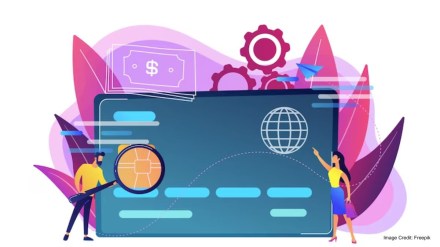Initiatives such as Mastercard’s introduction of its multi-token network is yet another stride towards a modernised payment system. Experts believe that this move of leveraging tokenisation technology, which replaces cardholders’ private data with unique tokens, might enhance security. This is further expected to reduce the risk of data breaches and fraudulent activities. “Mastercard’s recent announcement regarding the Multi-Token Network (MTN) might pave the way for a future where digital payments and fiat-based transactions converge seamlessly, revolutionising the finance system as we know it. Payments represent a fundamental layer of the economy and innovating this layer to make it frictionless brings about more adoption,” Vikram Subburaj, CEO, Giottus, a cryptocurrency platform, told FE Blockchain.
The total digital transaction value is expected to grow at a CAGR (compound annual growth rate) of 11.80% to reach $14.78 trillion by 2027, as per insights from Statista, a market research platform. According to industry experts, India reported digital transactions of over 89.5 million in 2022, primarily due to the unified payments interface (UPI). Not to mention that the Reserve Bank of India (RBI) has already rolled out its Central Bank Digital Currency (CBDC) trials at a retail level. Furthermore, it is expected that tokenisation rules which are made for data privacy can protect saved cards on platforms with the help of a token network.
With the introduction of MTN, Mastercard claims that it will be able to cover four pillars including effective identity management as permissions are essential to building trusted networks. Mastercard Crypto Credential, announced in April, to offer a set of common verification standards and infrastructure, in turn enabling trusted interactions among consumers and businesses using blockchain networks, the company further stated. “As digital transactions increase, we can expect a simultaneous increase in cryptocurrency-rail-based payments. This shift could also drive regulatory changes to protect consumers and ensure stability. Mastercard’s MTN is expected to be designed with identity, currency format, technology, and common rules to protect consumers and businesses,” Rajagopal Menon, Vice President, WazirX, a cryptocurrency platform, explained.
The future of MTN system can likely involve increased acceptance and use of digital currencies, including CBDCs, and other financial applications built on blockchain technology. In fact that despite India’s lack of regulations for cryptocurrencies, experts believe that it has been opened to the adoption of technology. “India’s perception of being conservative towards adopting new technology is evolving rapidly. The country is actively embracing digital transformation, making it a suitable environment for initiatives like the one taken by Mastercard. With the government’s push for digital payments, increasing smartphone penetration, and the growing popularity of fintech startups, India is witnessing a significant shift towards digitisation,” Trishneet Arora, founder,CEO, TAC security, a global cyber security solutions, concluded.
